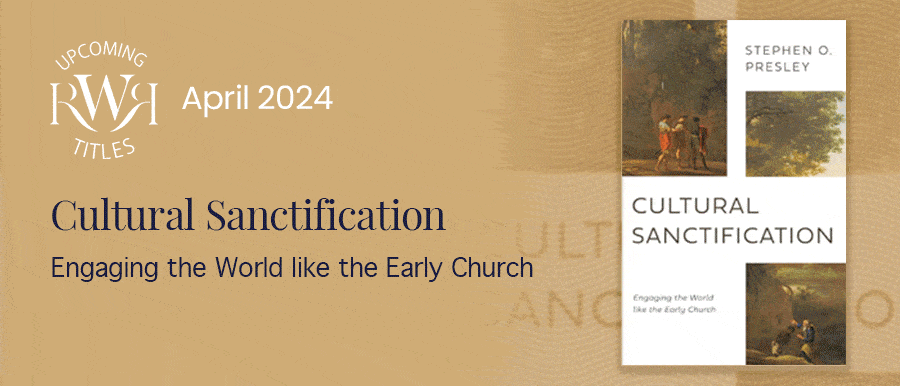
The Rights of Women
Excerpt from The Rights of Women: Reclaiming a Lost Vision by Erika Bachiochi
Mining the intellectual history of the cause of women’s rights can shed light on how a philosophical and political principle—equal citizenship for women—has morphed into something that nearly contradicts its original moral vision, a vision first fully articulated by English philosopher Mary Wollstonecraft in A Vindication of the Rights of Woman more than two centuries ago. For Wollstonecraft, political freedom and legal equality were not ends in themselves but necessary means to higher human ends: the common pursuit of intellectual and moral excellence.
The political and civil rights Wollstonecraft claimed for women in the late eighteenth century have been over time and with great struggle steadily secured in modern democracies around the world. In the West, however, the ennobling moral vision upon which she built her rights claims has largely been abandoned. With the stark moral failures of so many of our political, economic, and cultural leaders, the sexual exploitation of women and children through pornography and sex trafficking, the relentless violence that increasingly targets the most vulnerable human beings, the abject poverty of so many even amid ever-growing wealth, and the materialism and consumerism that works to corrupt the soul of the West, Wollstonecraft’s substantive vision is needed now more than ever.
For Wollstonecraft, women’s capacity to reason, and thus to pursue reason to its proper ends, namely, virtue (imitation of divine perfection) and wisdom (imitation of divine reason), was the very foundation for women’s just claims to political freedom and equality. But not just for women: freedom as such was a necessary means to these higher human ends. It was the forgetfulness of these noble ends, on the part of men especially, that facilitated the subjugation and victimization of women, even in their own homes.
A freedom bereft of wisdom and virtue reduces men to beasts, Wollstonecraft claimed. And this was especially true in intimate relations between men and women, the wellspring of the domestic affections she recognized as the source of every public virtue. Chastity was not to be abandoned in the pursuit of equality between the sexes, nor was this virtue specially required of women, as was the convention of the day. Rather, it was men who, in pursuing self-serving indulgence without habitual respect for women or a regard for the noble purposes of sex and the goods of shared domestic life, had too often failed to treat women with the dignity they deserved. Women, for their part, had too often acquiesced, fashioning themselves more pleasing to the eyes than strong in the mind. Indeed, the eighteenth-century philosopher identifies want of chastity in men as the single most consequential offense against women. Wollstonecraft’s radical vision of sexual integrity for both sexes, with a view toward virtuous friendships of mutual trust and collaboration, poses an especially striking challenge to a modern-day women’s movement shaped, since the 1970s, by a very different kind of sexual revolution.
Wollstonecraft’s best-known work, A Vindication of the Rights of Woman, was published in 1792, just two years after she published A Vindication of the Rights of Men, the first widely read critique of Edmund Burke’s famous 1790 defense of the British monarchy. Wollstonecraft wrote these treatises during a time of marked political and social change, as the American and then French revolutions threw off old forms of hereditary rule in their respective attempts (with greater and lesser success) to enact altogether new forms of republican government based on God-given rights, derived from the moral status of human beings as rational creatures.
In both the Rights of Men and the Rights of Woman, Wollstonecraft articulated this now-familiar rationale for civil and political rights in the modern era, artfully extending its reach to women. But unlike most of her contemporaries, Wollstonecraft’s defense of rights was inspired by an ancient view of the human person, one that exalted the common human pursuit of wisdom and virtue above all else. She thus offered a unique synthesis of ancient wisdom and modern political insight, correcting errors she saw among philosophers of her day, and proposing a program that in its fullness remains still yet untried today.
Like her fellow travelers in the Enlightenment period, Wollstonecraft extolled freedom from illegitimate and arbitrary power, but not a freedom left to its own devices. Civil and political rights for both men and women (men without property at the time fared little better than women, and slaves often fared far worse) were essential to human dignity and political progress. But such rights were themselves born of moral duties to self, family, fellow citizens, and God. That is, political freedom was at the service of the moral development of each person, which consisted, in large measure, of virtuously fulfilling the ordinary duties of life. By assigning women to a dependent state, ill formed both intellectually and morally, social convention had rendered them incapable of fulfilling their familial and social duties as well as they might. Wollstonecraft argued that women ought to be freed from those social conventions that judged them less capable than men (and created only to please them). Such freedom ought to be extended not so that women might pursue a life of moral mediocrity, or worse, vulgarity, which would be no freedom at all. Wollstonecraft’s was a freedom for excellence.
Wollstonecraft was strongly influenced by the classical republican tradition that was experiencing a renaissance in her time, and so she was persuaded that new forms of republican government would require civic virtue. But she did not recommend virtue for its social utility. Indeed, she railed against utilitarian views of virtue, especially as conceived in aristocratic society as mere decorum or manners; such displays too often lacked an interior disposition of authentic benevolence toward fellow creatures. Nor did she hesitate to repudiate the view, then current in the writings of Jean-Jacques Rousseau and others, that virtue was bifurcated by sex, with women devoted to developing only those “feeling” virtues most pleasing to “rational” men. Rather, for Wollstonecraft, personal virtue, most highly manifest in benevolence, represented the highest attainment of human life, for men and women in equal measure. All institutions in society ought to be designed according to, and measured against, this highest human ideal.
Wollstonecraft did not preach sanctity in a religious sense, but a religious perspective did inform her thinking. She sought instead to enunciate the moral duties that characterized rational creatures, duties to self (to develop one’s rational faculties and master one’s appetites), to family (to care for one’s dependent children, spouse, and elderly parents), to fellow creatures (to be useful in one’s work and respect the human dignity of all others, regardless of social status), and to God (to pursue truth and goodness and to trust in his providential designs). As the content of her children’s stories attest, Wollstonecraft viewed the affectionate inculcation of virtue in children to be among the most essential of all social duties, and so motherhood and fatherhood the very highest of callings.
Wollstonecraft’s appeal for women’s education is her most remembered contribution today; her rationale perhaps less so. The self-taught philosopher believed that if women, like men, were afforded both intellectual and moral formation and the opportunities to engage in more serious-minded occupations, they would enjoy greater independence of mind and in turn better appreciate their distinctive duties to their families and beyond. Wollstonecraft’s view of marriage in her Rights of Woman—a relationship of reciprocity and friendship between equals, a shared project for the upbringing of children, and the best means to restore harmony between the sexes—remains the treatise’s most farsighted vision. Given the dangerous political upheaval that served as the context of her first romance, the unjust marital laws that existed in her time the cruel abandonment she experienced at the hands of her first child’s father, and her untimely death just after the birth of her second child, Wollstonecraft was unable to live out this vision for long. But her vision still has much to teach us today.
Excerpted with permission from The Rights of Women: Reclaiming a Lost Vision by Erika Bachiochi (©2021 University of Notre Dame Press).

Join the Mailing List
Check Out Our Upcoming Reviews
Physical books are at once a conduit for conveying complex and well-developed ideas and an artifact of the time and place from which they come. Beginning January 2024, each month the Reading Wheel Review (RWR) will select one book to engage and then each week we will publish a different engagement with that text, typically a review, an excerpt, a substantively related essay, or an interview with the author or a figure who works in the field represented by the book we’ve selected. We look forward to sustained engagement with a variety of books, both new and old, as we launch and grow the RWR. Sign up to keep connected.
